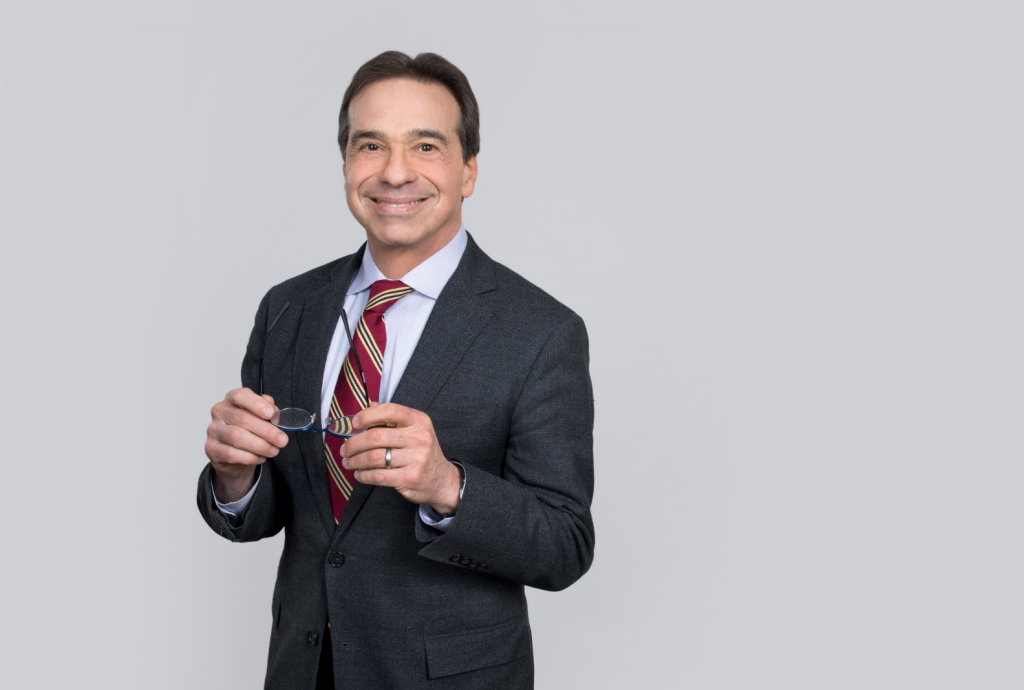As speaker for the fourth annual John and Lawrence Bonzani Memorial Law Lecture, Michael Zeldin, ‘73, emphasized the importance of utilizing information in place of personal gain to help the public.
The annual lecture was started in 2017 by Andrew Bonzani, ‘86, Juris Doctor from St. John’s University ‘89, to honor his brothers, John and Lawrence. The program focuses on inviting Binghamton University alumni to speak on contemporary events and issues regarding law and the legal profession. On Oct. 6, Harpur Edge, the Harpur College Dean’s Office and Harpur Pre-Law Advising hosted the event over Zoom in a webinar style, splitting between the general lecture and a Q&A period where audience members could propose thoughts and ideas.
Zeldin is a legal analyst for CNN and a former special counsel aide on money laundering with Robert Mueller, former FBI director and special counsel during the investigation into Russian interference in the 2016 presidential election. Titled “Duty to Disclose: When is it Okay to Remain Silent?,” Zeldin’s lecture focused on the dilemma between confidentiality and public safety within various professions, such as law, health care and journalism. Zeldin credited his idea for this talk to real-life examples, like books by Michael Bolton, former aide to U.S. President Donald Trump and Bob Woodward, a journalist who helped expose the Watergate scandal while working at The Washington Post.
Zeldin explained how confidentiality in attorney-client privilege, doctor-patient privilege and journalism allows people to speak about issues truthfully and allows professionals to do their jobs in the most efficient way possible. He believes when public safety is at risk, it is one’s societal duty to take action with such information regardless of the personal consequences, such as job loss, financial loss or compromised reputation.
“In our obligations as citizens to speak up or remain silent, under what rationale do we justify remaining silent?” Zeldin said. “When we see it with the cases of doctors, lawyers and others, when public safety is at stake, even notions of privilege are overcome.”
Harpur Edge Director Erin Cody thought the event was insightful for liberal arts students looking to pursue a career in a variety of fields.
“The event was a great opportunity to connect students to an alumnus who has led a very successful career and could engage us in thought around a topic that many will face in our lives as engaged citizens and in future professions,” Cody wrote in an email. “I think Mr. Zeldin’s questions and reflections were inspiring and connect the value of a liberal arts degree to applications considering current ethical questions students are facing to those they will face in a diverse array of professions in their futures.”
Alex Jablonski, pre-law adviser and general academic adviser for Harpur College, who served as moderator during the Q&A section of the webinar, agreed with Cody.
“I thought that this turned out to be an excellent event, even with the switch to a digital format,” Jablonski wrote in an email. “[Zeldin] has visited campus to speak before, and so we knew that his remarks would be thoughtful and relevant in our current moment — something underscored, I think, by the engagement of the audience. Their questions demonstrated a real interest in what [Zeldin] had to say and made for a great conversation.”
In 2018, Zeldin visited BU to give a lecture titled “Trump on Trial: The Mueller Investigation,” and employed a discussion surrounding the investigation.
Among the audience members was Maximilian Kurant, a sophomore majoring in sociology, who thinks engaging lectures by BU alumni are a unique experience for career development.
“This was definitely helpful to me as I look toward what I want to do in my career because [Zeldin] is also a Harpur College graduate,” Kurant wrote in an email. “So, as a person currently in the college as well, though many decades later, I can see what kind of career I can strive for after I graduate and what kind of impact I can have in the future. The fact that this felt like a human discussion with students and not some generalized lecture made me feel like I was in the room with him and really learning. This was such a unique opportunity, and I was so grateful for it. I’d love to see more events like this.”



